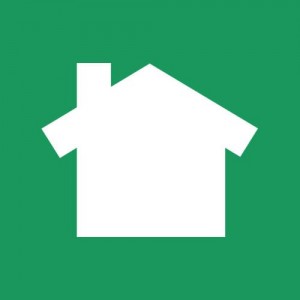How to land in a new place and create community

Ever since I learned about Nextdoor.com I have seen its potential to help people land in a new place more quickly and build a community around themselves. Most of the time, when we move,e it takes a while to acclimate and find a new group of friends. I would guess the time it takes most people to arrive in a new town to be 2-3 years. What would our lives be like if that time were shortened to months or weeks, instead? I think they’d be richer, and I explain below how this can be done by anyone, anywhere.
Using Nextdoor.com and other online tools such as Constant Contact* (email service provider + survey capability) and Facebook (for group functions), it’s possible to quickly build a list of people who live close by who share your interests. When one relocates, these tools can be used to create a new group of friends quickly.
I’ve been doing this in my local neighborhood here in Portland, and it’s led to amazing connections.
Here are the steps I have taken to try this out:
- Sign up for Nextdoor.com.
- Created an email list for potential new friends using an email service provider, and set up a sign-up form that people can use to subscribe (or just create a simple group in your email client like Outlook or Gmail). You can make more than one list for different interests, e.g., people who like to play chess, play music, or like to effect change to make the neighborhood more livable. A person can be added to more than one list.
- I started conversations on Nextdoor around various list topics.*
- Via private messaging, I asked people who seem interesting to you to join my lists (provide the sign-up link) and I explained what I am up to and asked for their email address.
- Once I formed a group, I invited group members to events. In my case, I’ve hosted house concerts, which is a favorite way I like to gather with people. I have also started a Facebook group so that the members of the group can speak to one another and possibly instigate activities themselves. The cool thing here is that you’re acting as a matchmaker, and all of the connections are local!
- Repeat the above until your social life is full of interesting people who live close by and may enrich your life.
- Show others what you’ve done (we learn by teaching).
I’m always open to feedback. Have you tried something like this? What has worked for you? Please feel free to help me improve this concept in the comments section below or write me @ albert@albertideation.com.
As of 9.26.19 I have been doing this for about 11 months, and I’m learning as I go. I have a list of 75 people in my Portland, Oregon, USA neighborhood who have been invited to various events at my house (mostly house concerts and an orphans’ Thanksgiving), and the experiment continues. I also just learned about fellow traveler Rachael Lynn’s new book At Home Anywhere, which looks promising!
* Another way to find people who share interests is by creating a survey (I use the tool in Constant Contact). That way, you can find people who share your interests and ask for their contact information all in one effort. The link to Constant Contact above is an affiliate link.
Here’s some of my past writing about Nextdoor.com
- Oh boy, Nextdoor.com
- Changing the world with Nextdoor, one neighborhood at a time
- Efforts in my own community using Nextdoor to effect change
Yes, Yes Marsha, also has some good thinking about the challenges of moving. to a new city and making new friends.
12.20.21 – article on the difficulty of making friends as adults.
7.18.25 – Found this gem on building your village locally today (thanks, Brother Dan)







